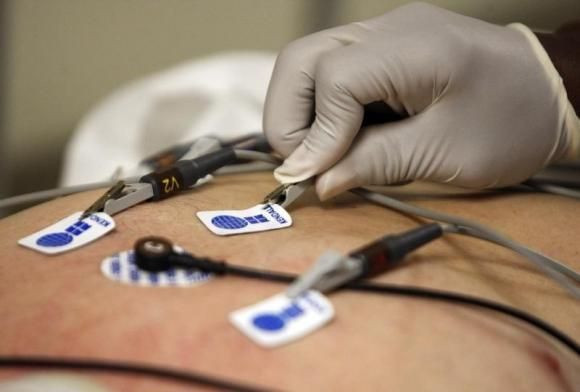Broken-Heart Syndrome: Rare But Real

Highly stressful moments such as death of a loved one, natural calamity or financial losses can trigger chest pains and shortness of breath. These symptoms can be felt when having a broken-heart syndrome, a serious condition mimicking a heart attack. Sara Sirna, a cardiologist at Loyola University Health System, recommends seeking immediate medical help when going through these to be certain about diagnosis and treatment.
Takotsubo’s cardiomyopathy (TCM) or transient left ventricular apical ballooning syndrome (TLVABS) is the medical condition nicknamed "broken-heart syndrome." Almost 90 percent of reported cases occur in postmenopausal women with ages ranging from 62-76 years. TCM is infrequently diagnosed and it could affect younger people as well. Around 3 percent people in Western countries and 2.2 percent of the Japanese populace has been affected by the broken-heart syndrome. Patients are usually treated 4 to 8 weeks to recover completely from this heart condition and further complications are rare.
Currently, the underlying cause of stress-induced cardiomyopathy has not been identified, but several studies have been done to determine related factors. Emotional and physical stressors that increase levels of stress hormones such as adrenaline were linked to factors that trigger the symptoms of TCM. Accidents, a major surgery or serious ailment are some of the known physical stressors.
An electrocardiograph (ECG) of an individual affected by TCM may show irregularities seen in a heart attack. However, broken-heart cardiomyopathy does not have blockage or prolonged effects on the heart muscle unlike a heart attack, according to Dr. Sirna. Health specialists prescribe basic medications for heart ailment to treat broke-heart syndrome, which patients usually take while recuperating at the hospital. Stressors that may have contributed to the condition should also be avoided to prevent another broken-heart episode.
Studies on Takotsubo cardiomyopathy was introduced in Japan in 1990, but after more than two decades, almost 300 scientific publications about this condition has circulated worldwide. Although this heart condition is seldom recognized, information makes the general population much aware of syndromes that are triggered by stress-induced situations. Most related publications on TCM recommend follow-up studies and long-term observation of affected individuals to have a consensus on its causes and management.
To send feedback about the content, email: j.panganiban@ibtimes.com.au





















